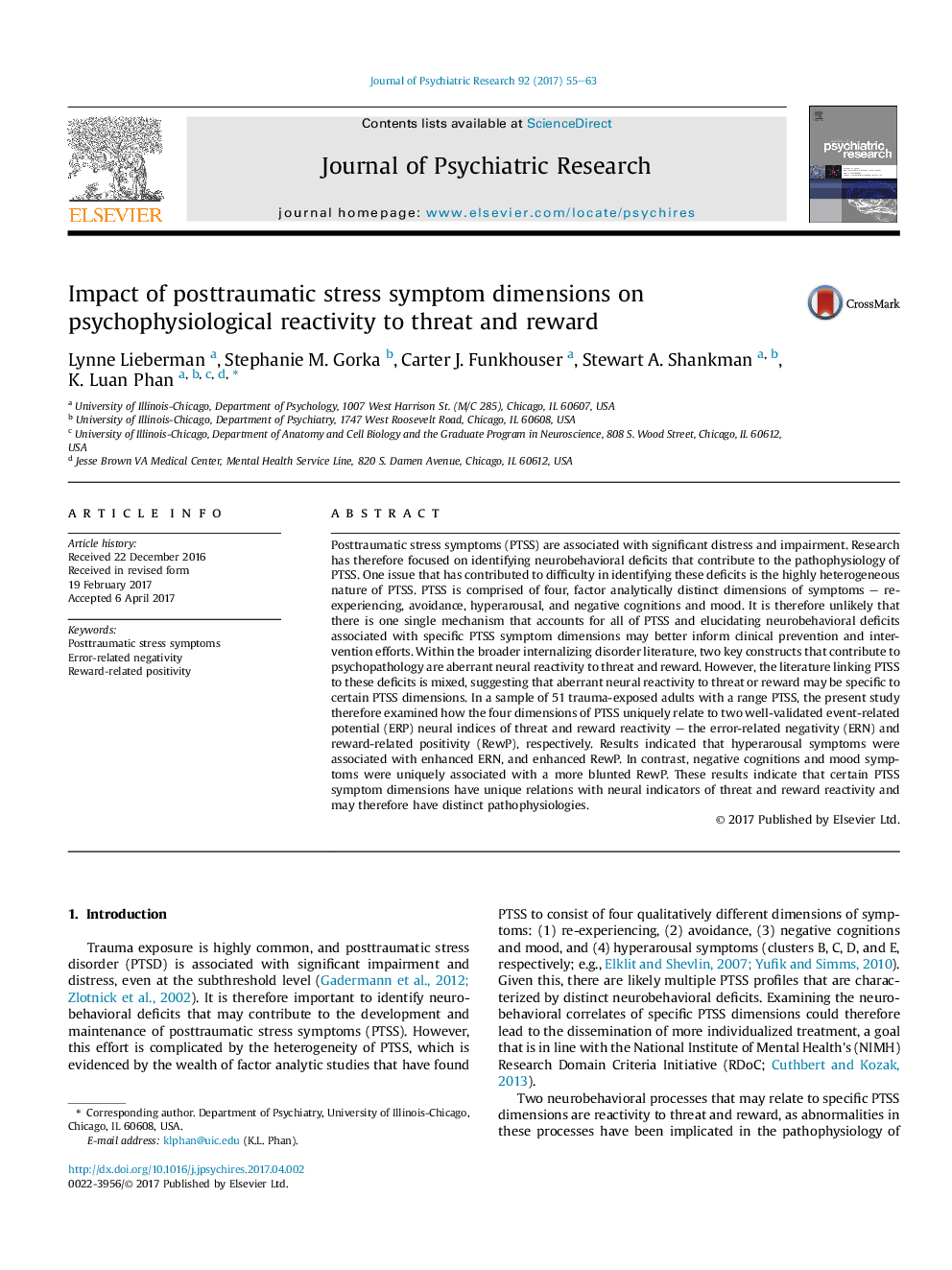ترجمه فارسی عنوان مقاله
تأثیر ابعاد علامت استرس پس از سانحه بر واکنش روانشناسی بالینی به تهدید و پاداش
عنوان انگلیسی
Impact of posttraumatic stress symptom dimensions on psychophysiological reactivity to threat and reward
| کد مقاله | سال انتشار | تعداد صفحات مقاله انگلیسی |
|---|---|---|
| 112693 | 2017 | 9 صفحه PDF |
منبع

Publisher : Elsevier - Science Direct (الزویر - ساینس دایرکت)
Journal : Journal of Psychiatric Research, Volume 92, September 2017, Pages 55-63
ترجمه کلمات کلیدی
علائم استرس پس از سانحه، منفی مربوط به خطا، مثبت بودن پاداش،
کلمات کلیدی انگلیسی
Posttraumatic stress symptoms; Error-related negativity; Reward-related positivity;

